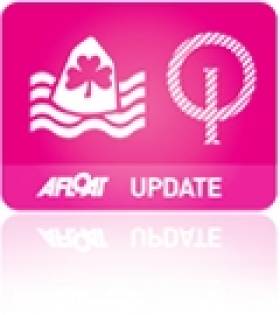Displaying items by tag: Balyholme YC
#optimist – Howth Yacht Club's Harry Bell was the winner of a cut–short Optimist Ulster Championships at Ballyholme Yacht Club yesterday. Like other east coast sailing events Satuday's schedule was blown out and three races were sailed on Sunday. Lough Derg Yacht Club's Sarah Levie was second in the 32–boat senior fleet and third was the Royal St. George's Hugh Kennedy. Results for the senior, junior and regatta fleets are downloadable below.
104 Oppies at Ballyholme for Ulsters
Three fleets of Optimists, totalling 104 young sailors, gathered at Ballyholme YC last weekend for their Ulster Championships and faced a mix of conditions, everything from blue skies and medium breeze to rain and 30 knots.
Three races were completed on day one in the senior and junior fleets as the wind rose steadily during the day from 15 kts to 22 kts and gusted 25 kts at times. Some of the younger sailors struggled in the testing conditions but the improvement in the Regatta Fleet sailors was obvious as they persevered in the increasing winds..
Once again Daire Cournane successfully won all three races despite challenged at various times from Howth sailors Robert Dickson, Fergus Flood and Aoife Hopkins.
In the senior fleet Peter Mc Cann won race one followed by Philip Brownlow winning races three and four.
The junior fleet completed two races on day two. During the third race of the day a squall came through bringing with it driving rain and winds gusting 30 kts, combined with a large wind shift. The juniors finished the race but the decision was made to abandon further racing for the senior fleet.
The two senior fleet races were won by Seafra Guillfoyle and John Durcan and the overall winner of the Senior fleet for the Ulster Championships was Patrick Crosbie.
The winner of the Junior Fleet was Daire Cournane who completes a clean sweep of regional championships this season.
The Regatta Fleet, although diminished in size, was not diminished in enthusiasm and continued sailing throughout the squall on Sunday and even after the senior fleet had sailed in. These will be the ones to watch in the future.

























































